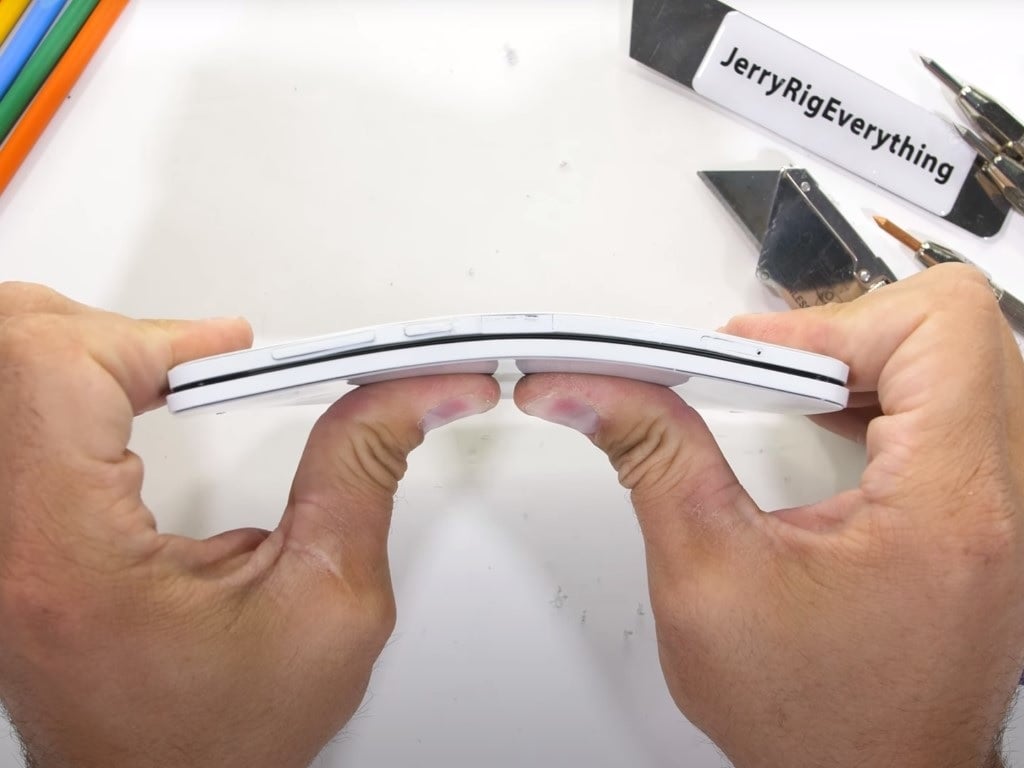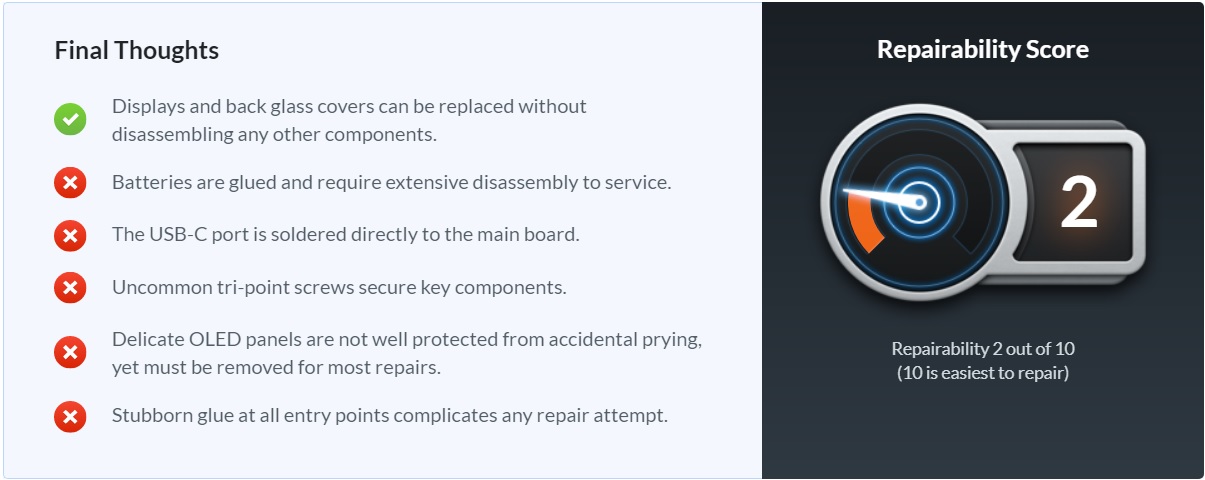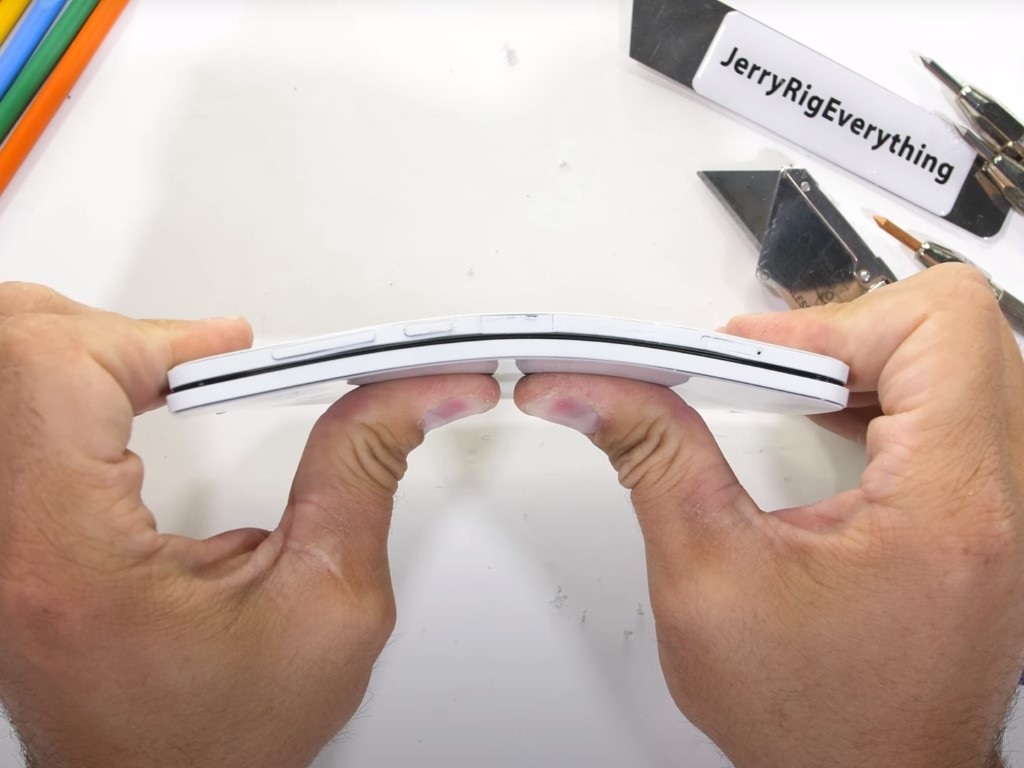While the Surface Duo’s software is currently buggy, Microsoft has focused quite a bit on ensuring the mechanics of the 360-degree hinge would be robust and unbreakable for folding and unfolding the two screens.
According to YouTuber JerryRigEverything, Surface Duo’s two exterior screens are about as scratch resistant as any typical AMOLED panel, but Microsoft’s hinge mechanism is strong and the phone won’t bend when it’s closed.
In his video embedded below, Jerry noted that the Surface Duo is smaller and thinner than the Note10 Plus. The device is also incredibly thin when folded and it feels more like an e-book reader when you open it with two screens on the front.
Jerry also found that the frame and buttons are made from plastic. In fact, there is plastic along the top and as well as along the bottom next to the USB-C charging port.

The hinge mechanism is apparently made from metal along with the “two rods running down its spine”. Thanks to the metal hinge, it’s almost impossible to bend the Surface Duo in half. If the strong metal hinge was not there, the phone would definitely break.
“The metal is enough to keep the phone and Surface Duo, which is not super fragile, passes my durability test,” Jerry said in his video.
Surface Duo repairability
The folks over at iFixit have also performed their typical teardown of the Surface Duo to reveal how hard it is to repair broken dual-screen hardware.
In their tests, Surface Duo has received a repairability score of 2 out of 10, which isn’t a great score, but it’s not surprising.

In any case, the teardown also confirmed that the hinge mechanism for folding and unfolding the Surface Duo is incredibly robust and simple. It’s also well designed to handle the unfoldings without issue.
The post Microsoft’s dual-screen Surface Duo is robust and durable appeared first on Windows Latest

